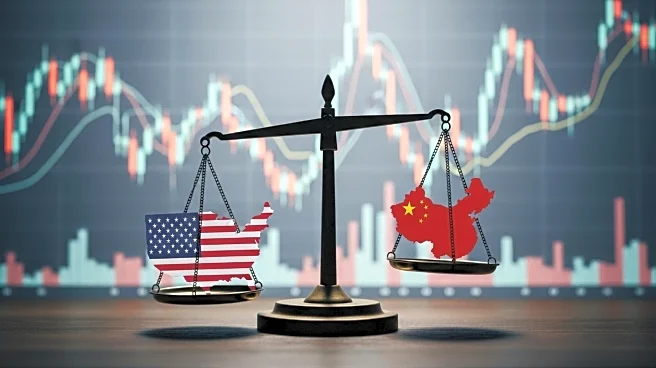What is the story about?
What's Happening?
U.S. stocks experienced a significant drop after President Trump threatened to increase tariffs on Chinese imports. The S&P 500 fell by 1.1%, the Dow Jones Industrial Average dropped 361 points, and the Nasdaq composite sank 1.7%. This downturn followed Trump's social media announcement expressing dissatisfaction with China's restrictions on rare earth exports. The stock market had been on a steady rise, but Trump's tariff threat has introduced volatility, affecting investor sentiment and market stability.
Why It's Important?
The potential increase in tariffs on Chinese imports could have far-reaching implications for the U.S. economy, affecting industries reliant on Chinese goods and materials. The stock market's reaction reflects concerns over trade tensions and their impact on corporate profits and economic growth. Investors and businesses may face increased uncertainty, potentially leading to shifts in investment strategies and market dynamics. The situation underscores the interconnectedness of global trade policies and financial markets.
What's Next?
If President Trump proceeds with the tariff increase, it could lead to further market volatility and impact U.S.-China trade relations. Businesses may need to reassess supply chains and pricing strategies in response to potential cost increases. Political leaders and economic stakeholders will likely monitor developments closely, with potential negotiations or retaliatory measures from China influencing future market conditions.















